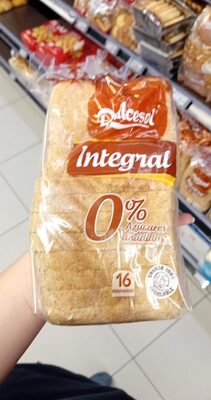
Barcode: 8410087414874
Integral
DOUBTFUL
📝 Reason: Some ingredients fall into a religious gray area. Their permissibility hinges on specific production methods not fully disclosed in available information.
🏷️ Category: Plant Based Foods And Beverages, Plant Based Foods, Cereals And Potatoes, Breads, Sliced Breads, Wholemeal Breads, Wholemeal Sliced Breads
📄 Certificates: Source Of Fibre
Ingredients:
Details
Understanding the Halal Status of Integral Bread
Integral bread has recently gained attention for its nutritional benefits and whole-food ingredients. However, for those observing Halal dietary laws, understanding its Halal status is crucial. The Halal status of Integral bread is currently classified as DOUBTFUL, meaning that while many ingredients are permissible, some aspects remain uncertain.
Ingredients Breakdown
Integral bread combines a multitude of ingredients:
- Whole Wheat Flour: This primary ingredient is permissible in Islam.
- Water: A fundamental ingredient that is universally accepted as Halal.
- Sugar: Also permissible, though sourcing should be verified to ensure no additives compromise its status.
- Yeast: A key component in bread-making that is Halal.
- Sunflower Oil (2%): Generally Halal unless sourced from non-Halal conditions.
- Fava Bean Flour: Another permissive ingredient.
- Salt: A universal mineral, completely Halal.
- Oat Fiber: Beneficial for health and classified as Halal.
- Emulsifiers (E-481 and E-471): These raise concerns due to their synthetic nature. Without clear knowledge of their origin, they can be considered dubious.
- Preservatives (Calcium Propionate and E-200): These ingredients are permissible.
- Wheat Gluten: Commonly used in bread, this is Halal as well.
- Flour Treatment Agent (Ascorbic Acid): Halal and widely accepted in the food industry.
- Stabilizer (E-412): This is permissible, though confirming its source is recommended.
- Flavoring: MAY CONTAIN TRACES OF NUTS, SESAME SEEDS, EGGS, MILK, SOY AND/OR DERIVATIVES: This warning is significant for those with allergies but generally does not affect Halal status unless derivatives are derived from swine or non-Halal sources.
E-Numbers Explained
Exploring the E-numbers in Integral provides clarity:
- E-481: An emulsifier derived from various fat sources. Its Halal status can depend significantly on the origin of its fats.
- E-471: Similar to E-481, with varied fat compositions, it is classified as potentially Halal, but verification is crucial.
- E-200: Calcium Propionate is widely accepted in the Halal community.
- E-412: This stabilizer is also considered Halal when free from non-Halal traces.
Brand and Certification Context
Integral is positioned within the growing market of Plant-Based Foods and Beverages, falling under categories like Sliced Breads and Wholemeal Breads. Although it doesn’t specify a brand, the ingredients suggest a wholesome, health-conscious approach. The certification listed as “Source of Fibre” indicates its nutritional benefits, making it popular among health enthusiasts.
Final Thoughts
While many components of Integral bread are Halal, there are sufficient uncertainties concerning the emulsifiers and possible traces of non-Halal substances that contribute to its dubious status. It’s always recommended for consumers to conduct direct inquiries with manufacturers regarding sourcing and production methods to ensure compliance with their dietary requirements. To maintain a Halal-aware lifestyle, being informed about such products is essential.
